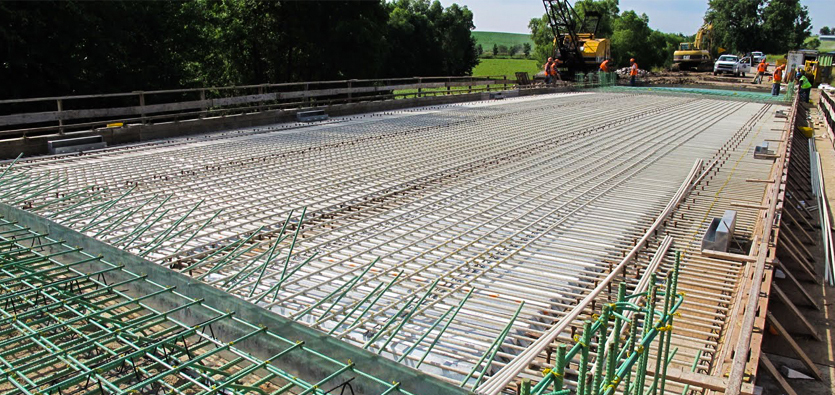Exploring the Benefits of Composites in Building
Exploring the Benefits of Composites in Building
Blog Article
Exploring the Uses and Advantages of Recycled Composites in Modern Industries
The combinations of recycled materials with advanced composite innovations presents an encouraging opportunity for enhancing sustainability, strength, and cost-efficiency throughout numerous markets. As industries look for cutting-edge options to resolve ecological concerns and enhance functional effectiveness, the unification of recycled composites arises as an engaging option.
Environmental Benefits of Recycled Composites
The use of recycled compounds in contemporary industries supplies significant ecological advantages, contributing to the decrease of waste and the conservation of natural deposits. By incorporating recycled composites into making processes, markets can decrease their reliance on virgin materials, consequently lowering the quantity of waste produced and the power required for removal and production. This shift in the direction of utilizing recycled compounds assists in drawing away materials from landfills, easing the burden on waste administration systems, and lowering greenhouse gas discharges linked with conventional manufacturing techniques.
In addition, the use of recycled compounds promotes the preservation of all-natural resources such as hardwood, minerals, and water, which are usually depleted via the extraction and processing of raw materials (composites). By prolonging the lifespan of products via recycling, sectors can aid preserve communities and biodiversity by reducing the demand for brand-new sources. On the whole, the adoption of recycled composites in modern industries plays an essential role in advertising sustainability and mitigating the environmental effect of manufacturing processes
Boosted Sturdiness in Product Manufacturing
With a focus on durability and robustness, incorporating recycled composites right into product production processes improves resilience and sustainability. By using recycled compounds, manufacturers can create products that are not only strong but likewise immune to use and tear, making them ideal for long-lasting use in different markets. The mix of different products in recycled composites can usually cause boosted strength and toughness compared to traditional materials, giving a cost-effective remedy for creating resilient goods.
One of the crucial advantages of using recycled compounds in item production is the ability to customize the material residential properties to fulfill certain longevity demands. By adjusting the structure and manufacturing methods, makers can tailor the recycled composites to hold up against extreme environmental conditions, heavy lots, or constant usage without compromising on performance. This flexibility in design and production allows for the production of highly resilient items that keep their stability with time, decreasing the need for regular substitutes and eventually contributing to a much more lasting production process.
Cost-Effectiveness and Financial Advantages
Including recycled composites into item manufacturing not only enhances resilience and sustainability yet also provides considerable cost-effectiveness and economic advantages. Using recycled compounds can result in minimized product expenses as recycled materials are frequently less costly than virgin products. Additionally, reusing composite products can lower garbage disposal expenditures and lower the requirement for land fill area, contributing to overall cost financial savings for industries.

Technology and Layout Adaptability With Recycled Composites
Utilizing recycled compounds in modern industries uses unequaled chances for advancement and style adaptability. By incorporating recycled materials into composite production procedures, business can push the limits of conventional style restraints and discover new opportunities. The convenience of recycled composites permits for the creation of intricate shapes and structures that may not be possible with standard products.
One of the vital advantages of recycled composites is their capability to be molded into different types, offering developers the freedom to experiment with special sizes and shapes. composites. This versatility opens a globe of creative chances, allowing the development of light-weight yet long lasting products that more info here fulfill the certain demands of different sectors
In addition, using recycled composites advertises sustainable practices and sustains the circular economy by decreasing waste and minimizing the ecological impact of making processes. This concentrate on environmentally friendly design solutions straightens with the expanding pattern in the direction of sustainability in modern industries, making recycled compounds an important resource for forward-thinking and cutting-edge firms.
Applications Throughout Various Industries
Recycled compounds discover diverse and impactful applications across a wide variety of markets because of their distinct buildings and sustainability benefits. In the vehicle sector, these products are significantly used for producing light-weight and durable parts, improving fuel effectiveness and minimizing carbon exhausts. The aerospace industry benefits from recycled compounds in the manufacturing of aircraft parts, where the products' strength-to-weight proportion is critical for making certain safety and security and efficiency. In building and construction, these composites are utilized for producing strong yet environmentally friendly building products, contributing to sustainable facilities advancement. The eco-friendly power industry uses recycled composites in wind generator blades and solar panels, harnessing their strength and try this web-site resistance to severe environmental problems. Additionally, the aquatic industry utilizes these products for producing boat hulls and parts, providing boosted sturdiness and rust resistance. The versatility and sustainability of recycled compounds make them go to the website important throughout various industries, driving development and environmental stewardship. composites.
Verdict
To conclude, the usage of recycled compounds in contemporary markets provides substantial environmental benefits, boosted durability in product production, cost-effectiveness, and economic benefits. In addition, using recycled compounds permits innovation and layout versatility across different industries. In general, the fostering of recycled composites presents a practical and lasting solution for fulfilling the needs of the industry while likewise lowering ecological influence.

One of the crucial benefits of using recycled compounds in product production is the ability to customize the material buildings to fulfill details toughness demands. Utilizing recycled compounds can lead to reduced product prices as recycled products are usually less costly than virgin materials. The aerospace market benefits from recycled composites in the manufacturing of aircraft components, where the materials' strength-to-weight ratio is important for ensuring safety and performance.
Report this page